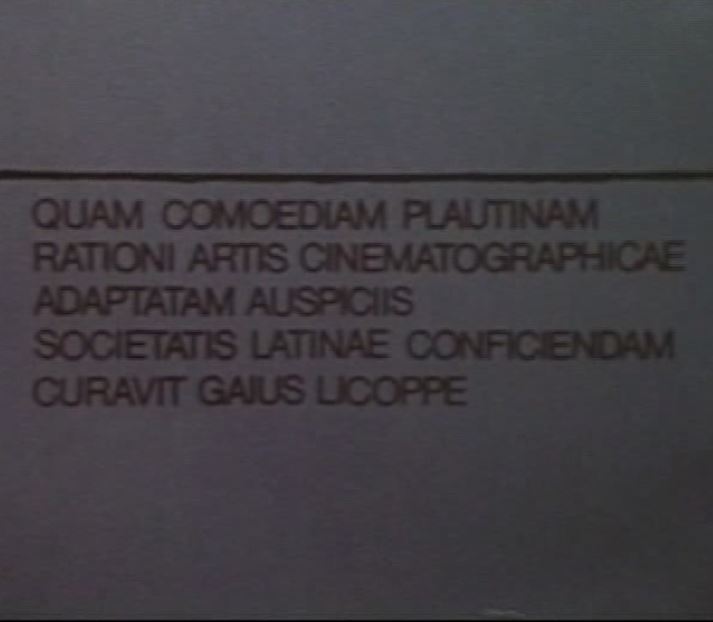
Rudens: pellicula e comœdia Plautina
Guy Licoppe, 2005


Latin (lingua Latina) is an Indo-European language of the Italic subfamily. It is highly inflectional and synthetic, and has a relatively free word order. With an attested life of almost three thousand years and widespread influence in all areas of culture, it constitutes the most universal and enduring language our civilisation has known.
Latin derives its name from its historical cradle on the plain of Latium, a region in central Italy which was inhabited by the Latini, presumably descendants of prehistoric indigenous peoples and various Bronze and Iron age newcomers. The settlements the Latini started to establish on the Palatine, Esquiline, and Quirinal hills near the river Tiber as early as the -9th century had coalesced three centuries later into the thenceforth renowned city of Rome, whose date of foundation is traditionally given as the 21st of April -753. A few centuries after that, a flourishing Roman republic would begin its expansion all over the Mediterranean basin, spreading its native language, Latin, to the rest of the world.
Latin reached its maturity as a language in what is consequently referred to as the classical period, around the lives of Cicero (-106 to -43) and Virgil (-70 to -19), profoundly enriched by the fine sap of ancient Greek culture. Throughout the centuries, the unparalleled drive of the Romans bestowed on the Latin language a vigour that enabled it to survive the demise of Rome itself and remain alive in the different kingdoms which became heirs to the Roman Empire in the West. The Latin language continued to spread throughout Europe during the long Middle Ages, as the language of jurisprudence, philosophy and theology. It bounced back with renewed strength in the Renaissance as the ever ideal vehicle of international communication for the now flourishing arts and sciences. Only the turbulent events and ideologies of the mere last couple of centuries have come close to dispossessing even the better educated of the riches of our heritage, promoting the impression that the Latin language died with the last of the ancient Romans.